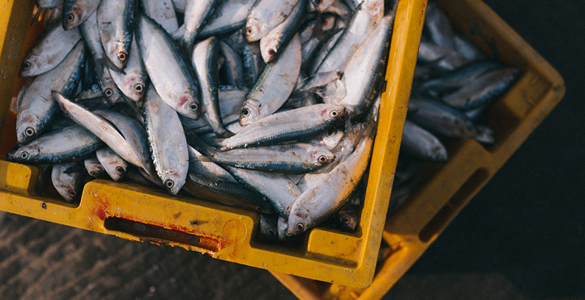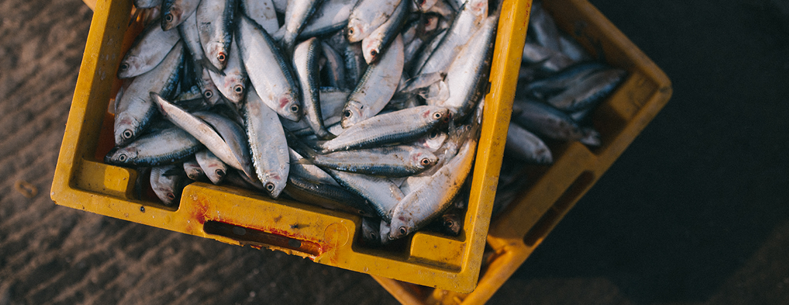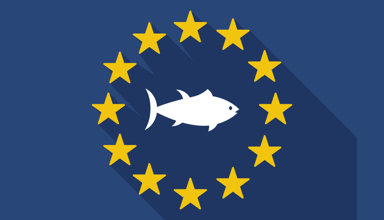On the 25 October the UK Government introduced the Fisheries Bill to the UK Parliament. The Bill supports the process of moving away from the EU’s Common Fisheries Policy (CFP), and provides the legal framework for the UK to manage its own waters, as an independent coastal state under the United Nations Convention on the Law of the Sea 1982 (UNCLOS).
The Bill is the first of the UK-wide legislative common frameworks, within Welsh devolved competence.
It provides a number of powers which will enable UK Ministers, and the Devolved Administrations, to introduce secondary legislation. The Bill contains a number of broad delegated powers with the aim of creating a dynamic and reactive fisheries regime. It does not set out detailed policy.
It’s accompanied by a delegated powers memorandum, which states that the Department for Environment, Food and Rural Affairs (DEFRA):
…has sought to balance the need for powers broad enough to allow us to react quickly to changes in the international fisheries management regime and to scientific advice against the need for effective Parliamentary oversight. It has considered carefully the nature of the powers being sought. Many fisheries measures are highly technical and in the Department’s view they are best dealt with in future secondary legislation.
What’s in the Bill for Wales?
Fisheries is a devolved matter and the Bill contains a number of powers which will be exercisable by the Welsh Ministers and the other Devolved Administrations, as well as by the Secretary of State.
To support a consistent approach to fisheries management across the UK, the Bill contains some powers which are exercisable by the Secretary of State in relation to devolved matters. However these powers are only exercisable with the consent of the devolved administrations.
Broadly speaking the majority of the Clauses in the Bill apply to Wales, and are within the legislative competence of the National Assembly for Wales. They will therefore require the legislative consent of the Assembly.
Fisheries objectives
The Bill replaces the sustainability objectives currently in the CFP, making the objectives for the Fisheries Administrations or the Secretary of State. Clause 1 of the Bill lists and defines a set of fisheries objectives. They are:
- the sustainability objective; ensuring “that fishing and aquaculture activities are environmentally sustainable in the long term”.
- the precautionary objective; “to apply the precautionary approach to fisheries management”.
- the ecosystem objective; “to ensure that negative impacts of fishing activities on the marine environment are minimised, and … that aquaculture and fisheries activities avoid the degradation of the marine environment”.
- the scientific evidence objective; “to contribute to the collection of scientific data, and … base fisheries management policy on the best available scientific advice”.
- the discards objective, and “to gradually eliminate discards, on a case by case basis”.
- the equal access objective. This secures that all UK fishing boats have equal access to UK waters.
Clause 2 defines a Joint Fisheries Statement (JFS), which must be adopted by the four UK Fisheries Administrations, setting out how their polices will achieve or contribute to the achievement of fisheries objectives defined in Clause 1. It also sets out the requirement for the Secretary of State to prepare a Secretary of State fisheries statement (SSFS), to state policies in a number of areas including:
- (i) contributing to the achievement by 2020 of a good environmental status (within the meaning of the Marine Strategy Framework Directive).
This clause also defines the Welsh Ministers as “the fisheries policy authority” for Wales.
Crucially Clause 3 sets out that a JFS must be prepared by the fisheries policy authorities acting jointly, and the first JFS and SSFS must be prepared and published before 1 January 2021. The JFS must be laid in draft before each of the legislatures for scrutiny, and consulted on appropriately. Schedule 1 sets out how the statements are to be prepared and published.
Clauses 4 - 6 look at amendments, review, and effect of the statements.
Taking back control
Clause 7 ends the current automatic rights for EU vessels to fish in UK waters. By revoking Article 5 of, and Annex 1 to, the CFP Regulation which provides for mutual access to EU waters by EU Member States’ vessels, the UK will control foreign fishing boat’s access to its waters.
Clause 8 sets out the access arrangements i.e. through a licence or “a purpose recognised by international law…”.
Clauses 7 – 17 and Schedule 2 broadly consolidate and clarify existing law with regards to licensing of fishing boats, as well as making some policy changes. They provide changes to the current regime for the licencing of UK vessels, as well as making provisions for the licensing of non-UK fishing boats in UK waters.
Clause 10 provides that it is a matter for each nation of the UK to license their own fishing vessels – Welsh Ministers would be able to grant a fishing license in respect of a Welsh fishing vessel, and so on.
Fishing Opportunities
Clause 18 sets out the power for the Secretary of State to set ‘fishing opportunities’, which are defined in the Bill as:
- (a) the maximum quantity of sea fish that may be caught by British fishing boats;
- (b) the maximum number of days that British fishing boats may spend at sea.
The maximum quantity determined will be the “catch quota”, and the maximum days determined will be the “effort quota”.
These functions are reserved to the Secretary of State for the “purpose of complying with an international obligation” of the UK. These purposes could include agreements with the EU or other coastal states, or obligations under UNCLOS.
This Clause replaces the current provision in EU law that allows the European Council to determine fishing opportunities for EU waters.
Clauses 19 – 21 deal with the duties relating to determining and distributing fishing opportunities, and ensuring fishing opportunities are not exceeded.
Everything else
Currently under the UK’s membership of the EU and CFP, financial assistance is given through the European Maritime Fisheries Fund (EMFF). Clause 28 introduces Schedule 4, which gives the Welsh Ministers powers to give or arrange for financial assistance for any person for certain purposes, including:
- (a) the conservation, enhancement or restoration of the marine and aquatic environment; and
- (b) the promotion or development of commercial aquaculture activities or commercial fish activities;
Paragraph 2 of Schedule 4 states that financial assistance must be given in accordance with a “scheme established by regulations made by the Welsh Ministers”. These powers are available in relation to wales, the Welsh zone, or Welsh fishing boats.
Clause 31 gives broad powers to make provisions on matters currently regulated by the EU under the CFP, these are:
- (a) for the purpose of implementing an international obligation of the United Kingdom relating to fisheries, fishing or aquaculture,
- (b) for a conservation purpose; or
- (c) for a fish industry purpose.
A “conservation purpose” and “a fish industry purpose” are defined, and the Clause lists the matters which the regulations must be related to.
Clause 33 provides regulation making powers in order to make provision regarding aquatic animal diseases. The Welsh Ministers must be consulted before the Secretary of State makes any provisions under theses Clauses.
However Clause 37 introduces Schedule 6, which provides Welsh Ministers with corresponding regulation making powers in relation to both Clause 31 and 33. Equally the Welsh Ministers must consult the other fisheries policy authorities, and any other appropriate persons, before making provisions under these Clauses.
Marine Conservation
Clause 7 introduces Schedule 7, which confers powers on the Welsh Ministers to make Orders in relation to the exploitation of sea fisheries, and the impact of fishing on marine conservation.
These provisions replace EU measures for the protection of the marine environment in Member States offshore zone. By amending the Marine and Coastal Access Act 2009 (MCAA), the Welsh Ministers are able to make Orders in relation to Wales and the Welsh offshore area, for conservation purposes.
How has the Bill been received?
Welsh Government
At the time of writing this blog the Cabinet Secretary for Energy, Planning and Rural Affairs, Lesley Griffiths AM is yet to comment on the Bill or publish a written statement. However, on 15 November the Welsh Government laid a Legislative Consent Memorandum (LCM) before the Assembly, which says that the “Welsh Government is generally supportive of the Bill as drafted, other than Clause 18”.
Clause 18 provides broad powers for the Secretary of State to set UK quotas, which could, as drafted, apply to stocks which are wholly within the waters of one of the devolved administrations. The LCM states that the Welsh Government is also considering two other issues:
- seeking to bring the National Assembly’s legislative competence in line with Welsh Ministers executive competence; and
- allowing Welsh Ministers to vary the conditions attached to permits issued which would allow more flexible management of Welsh fisheries.
Stakeholder reaction
GreenerUK has published a briefing ahead of the second reading of the Bill, on Wednesday 21st November. They welcome the Bill and in particular the inclusion of the fisheries objectives. However they say that:
…a significant omission is the lack of duty placed on authorities to deliver these objectives. This risks undermining the government’s aim of delivering truly sustainable fisheries management and with it thriving, healthy stocks, and consumer confidence that UK seafood is sustainably produced.
A recent article in Fishing News said that fishing industry leaders were giving “a cautious welcome” to the Bill, but also highlighted that “there will be a lot of detail to be worked out in the months ahead”.
Article by Lorna Scurlock, National Assembly for Wales Research Service






